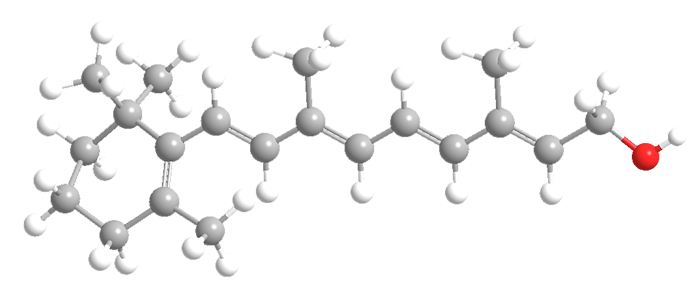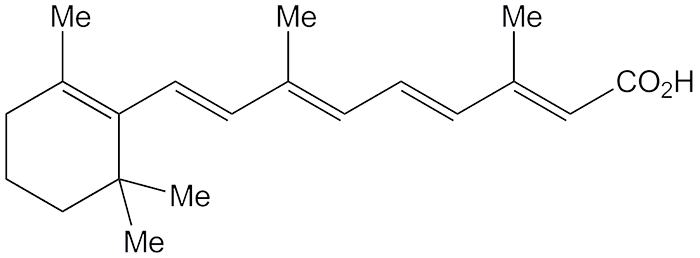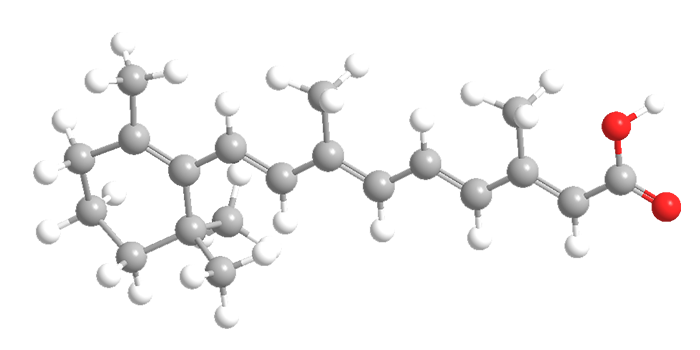



Vitamin A, or retinol, is produced from carotenoids in the livers of animals. It is also broadly defined as a series of compounds that have structures similar to retinol. It is essential for growth and development, and for strong vision. Retinoic acid is a metabolite of vitamin A that mediates the vitamin’s functions.
Recently, H. Veiga-Fernandes and co-workers at the Institute of Molecular Medicine (Lisbon) discovered that vitamin A is not only necessary for animals’ health, but it also may be essential for setting up the immune system before birth, when fetuses are in utero. They found that pregnant mice with vitamin A–poor diets produce babies with small lymph nodes and consequently weak immune systems. Retinoic acid produced from the mother’s vitamin A activates a gene that produces a hormone receptor that mediates the growth of lymphoid cells.
MOTW update:
October 17, 2016
This week’s Chemical & Engineering News reports that BASF plans to build a 1500-t/year vitamin A acetate plant that will open in 2020. The acetate is the article of commerce because it is more stable than the free vitamin A alcohol.
MOTW update:
October 30, 2023
Vitamin A1, also called retinol, is essential for animals’ growth, development, strong vision, and prenatal immune system establishment.
Earlier this month, Christophe M. Courtin and co-workers at the Catholic University of Leuven (Heverlee, Belgium) reported that retinyl palmitate2, a form of vitamin A used as a food supplement, can be stabilized from oxidating during long-term storage by combining it with cereal bran. In a high-temperature storage study, wheat bran, in particular, stabilized vitamin A most effectively, retaining its activity by 78% after 2 weeks, compared with 26% retention in the absence of the bran.
1. CAS Reg. No. 68-26-8.
2. CAS Reg. No. 79-81-2.

Learn more about this molecule from CAS, the most authoritative and comprehensive source for chemical information.
Molecule of the Week needs your suggestions!
If your favorite molecule is not in our archive, please send us a message. The molecule can be notable for its current or historical importance or for any quirky reason. Thank you!
Stay Ahead of the Chemistry Curve
Learn how ACS can help you stay ahead in the world of chemistry.

